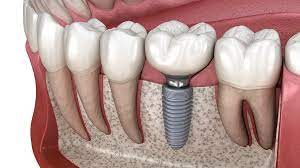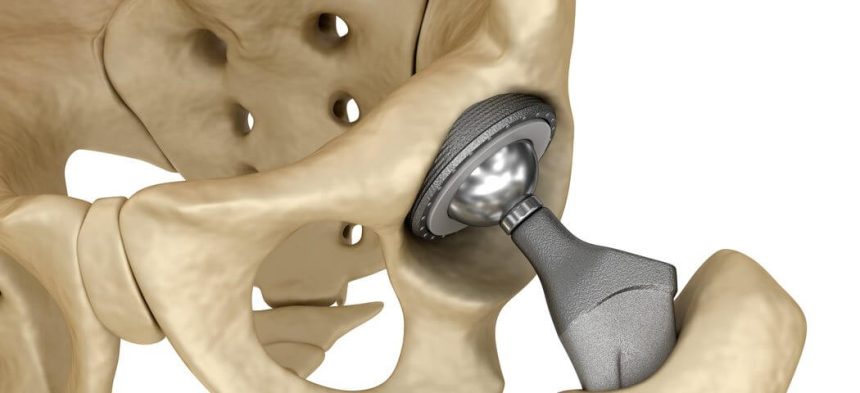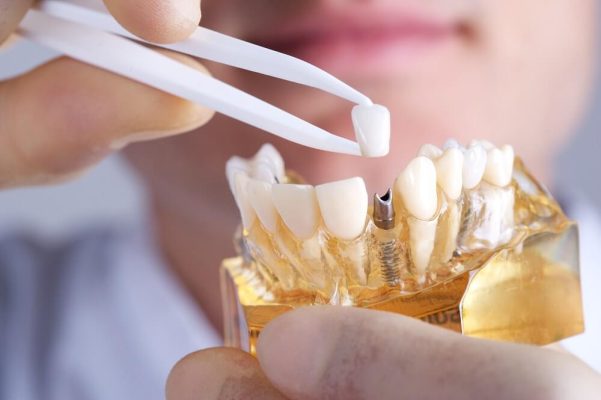Get Implants for Life
Get implants for life has become an increasingly popular option for people who are looking for a long-term solution to dental or joint problems. Artificial devices known as implants are inserted into the body to replace missing or damaged joints or teeth.
Table of contents
Types of Implants
Dental implants and joint implants are the two primary categories of implants. Joint implants are used to replace injured joints, such as the hips or knees, whereas dental implants are used to restore lost teeth.
Dental Implants

In order to replace lost teeth, prosthetic tooth roots known as dental implants are inserted into the jawbone. Compared to dentures or bridges, they offer a more durable and aesthetic option.
Dental implants are supported by sturdy bases comprised of titanium or other biocompatible materials that bond with the jawbone.
Advantages of Dental Implants
Compared to alternative tooth replacement methods, dental implants provide a number of benefits. They don’t need to remove good teeth like bridges do, making them more comfortable and natural-looking than dentures or bridges. Additionally, they facilitate easier eating and possibly enhance speaking.
Cost Considerations
The number of implants required, the difficulty of the process, and the location of the patient can all affect the price of dental implants.
A single dental implant can cost between $1,000 and $4,000 on average, while a full mouth restoration with dental implants can cost upwards of $30,000.
You may also like: Alternative to Dental Implants
Joint Implants

Artificial joints called joint implants are used to repair injured joints like the hips and knees. They are created to simulate the joint’s natural mobility and are constructed of metal, plastic, or ceramic materials.
For those with joint issues, joint implants can lessen pain, increase mobility, and enhance overall quality of life.
Common Types of Joint Implants
The most common types of joint implants include hip implants, knee implants, and shoulder implants. Hip implants are used to replace damaged hip joints, while knee implants are used to replace damaged knee joints. Shoulder implants are used to replace damaged shoulder joints.
Advantages of Joint Implants
People with joint issues may benefit from joint implants in a number of ways. They can aid in easing discomfort, enhancing mobility, and enhancing general quality of life.
Additionally, compared to other joint replacement methods like joint fusion, joint implants are more robust and long-lasting.
Reasons for Getting Implants for Life
There are several reasons why someone might choose to get implants for life. These reasons include improved functionality, improved aesthetics, and improved quality of life.

Improved Functionality
By restoring the normal function of missing or injured teeth or joints, implants can assist functioning. While joint implants can increase mobility and lessen discomfort, dental implants can enhance speech and chewing.
Improved Aesthetics
By restoring the natural look of missing or damaged teeth or joints, implants can also enhance appearances.
Joint implants can enhance the look of the afflicted joint, whereas dental implants can enhance the appearance of the smile.
Improved Quality of Life
Implants can improve overall quality of life by reducing pain and discomfort, improving mobility and functionality, and increasing confidence and self-esteem.
Process of Getting Implants for Life
The process of get implants for life can vary depending on the type of implant and the specific needs of the patient. However, there are several common steps involved in the process.

Initial Consultation
The first step in get implants for life is to schedule an initial consultation with a healthcare professional, such as a dentist or orthopedic surgeon.
The healthcare provider will evaluate the patient’s needs, current health state, and medical history during this session. They will also talk over the procedure’s advantages, dangers, and expenses.
Implant Placement Procedure
The implant placement procedure can start after the patient and a healthcare expert have decided that implants are the best choice. Usually, there are numerous processes involved in this, such as:
Dental implants: The titanium or biocompatible material will be surgically inserted into the jawbone by the dentist.
After a few months, the implant will eventually integrate with the bone. A new tooth will be fastened to the implant once it has fully fused.
Joint implants: The injured joint will be removed by the orthopedic surgeon and replaced with an artificial joint. The artificial joint will imitate the natural movement of the joint and be composed of metal, plastic, or ceramic materials.

Post-Operative Care
To promote optimal healing and recovery following the implant insertion operation, the patient will need to adhere to particular post-operative care guidelines.
This could entail taking prescription drugs, abstaining from particular foods or activities, and going to follow-up doctor’s appointments.
Long-Term Maintenance and Follow-Up Care
Patients will need to participate in long-term maintenance and follow-up treatment in order to guarantee the durability of the implants.
Regular dental checkups and cleanings for dental implants, as well as physical therapy and checkups for joint implants, may fall under this category.
Risks and Considerations
While implants can have a number of advantages, there are also possible hazards and factors to take into account. These may consist of:

Potential Complications
Implant-related issues including infection, implant failure, or nerve injury can occasionally occur. Before having the treatment, patients should be informed of any possible dangers and talk to a healthcare provider about them.
Pre-Existing Medical Conditions
Dental implants come with a higher risk of problems if a patient has certain pre-existing medical disorders like diabetes or gum disease.
Before having the operation, patients should talk to their healthcare provider about their medical history.
Lifestyle Factors
Smoking and binge drinking are two lifestyle choices that might raise the risk of implant-related problems. Before having the surgery, patients should talk to their healthcare provider about their lifestyle habits.
Costs and Insurance Coverage

The cost of get implants for life can vary depending on several factors, including the type of implant, the number of implants needed, and the geographic location. Insurance coverage for implants may also vary depending on the patient’s specific insurance plan.
Before having the operation, patients should talk with their healthcare provider about the price and insurance coverage.
Average Cost of Single Dental Implant
| Country | Average Cost of Single Dental Implant (USD) | Insurance Coverage for Dental Implants |
| United States | $2,500 | Varies by insurance plan |
| Canada | $1,800 | Varies by insurance plan |
| United Kingdom | $1,500 | Some coverage under NHS or private insurance |
| Australia | $2,500 | Limited coverage under Medicare or private insurance |
| India | $900 | Limited coverage under private insurance |
| Thailand | $1,200 | Limited coverage under private insurance |
As you can see, depending on the nation, the typical cost of a single dental implant can vary greatly. Dental implant insurance coverage differs by nation and insurance plan as well.
To find the greatest possibilities for themselves, patients should examine the prices and insurance coverage in their particular nation and speak with a healthcare practitioner.
Final Thought
Get implants for life can provide several benefits, including improved functionality, aesthetics, and quality of life. To decide if implants are the right choice for them, patients should talk with their healthcare provider about the advantages, dangers, and expenses. Implants can offer a long-term answer to dental and joint issues with the right upkeep and care.
Youtube Vİdeo About Get Implants for Life
FAQ
Implants replace missing teeth or joints permanently. With appropriate care, they may survive decades or perhaps a lifetime.
The cost of implants4life depends on the kind, number, and placement of the implants. A full mouth reconstruction with dental implants costs over $30,000. A single dental implant costs $1,000 to $4,000.
All-on-4 implants are long-term tooth replacements. With appropriate care, they may survive decades or perhaps a lifetime. All-on-4 implants’ longevity depends on the patient’s dental hygiene and health.
Several types of implants can permanently replace missing teeth or joints. Permanent implants include dental, joint, and all-on-4. They may last a lifetime, yet they may not endure forever.
Yes, dental implants are livable. Dental implants enhance eating, speaking, and smile look for many people. Dental implants can last a lifetime with proper care.





